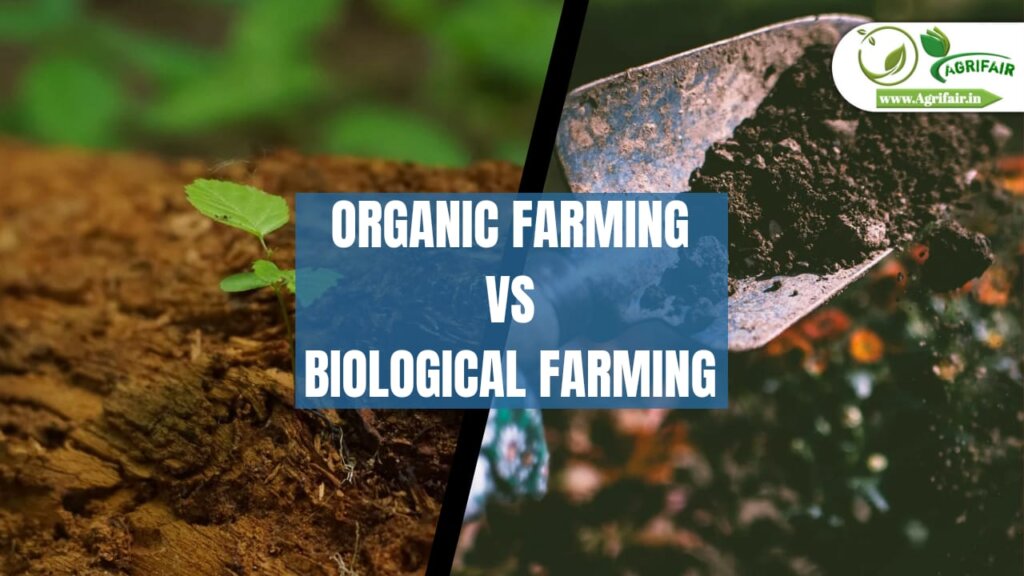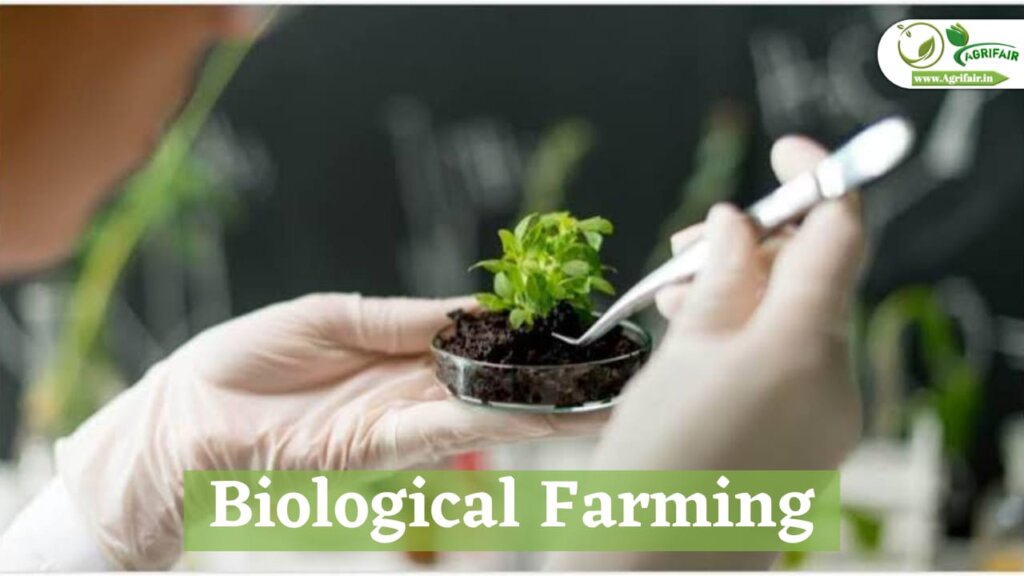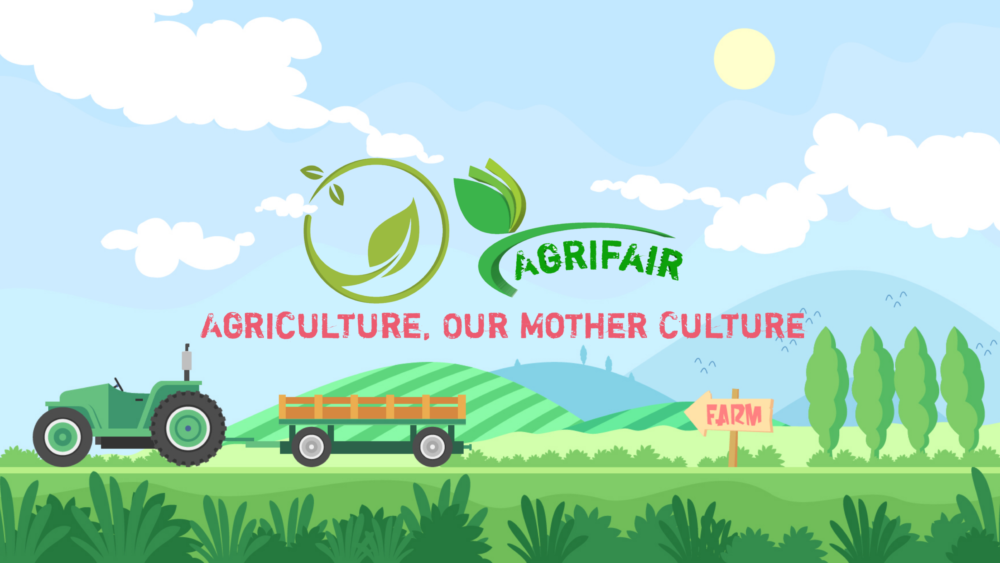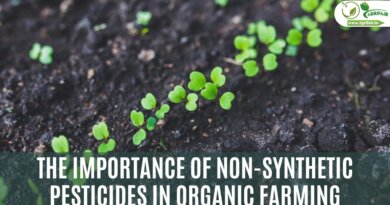Revolutionize Your Farming: The Power of Organic Farming vs. Biological Farming
Organic farming and biological farming are two methods of growing crops that aim to minimize the impact on the environment and produce healthier, more nutritious food. While both methods are similar in many ways, there are some key differences between them. In this article, we will explore the difference between organic farming and biological farming and the benefits of each method.

Organic Farming
Organic farming is a method of growing crops that does not use synthetic fertilizers or pesticides. Instead, it relies on natural methods to promote plant growth and control pests. Organic farming emphasizes the use of crop rotation, cover cropping, and composting to build healthy soils and maintain biodiversity. Organic farmers also use non-toxic pest control methods, such as natural predators, crop rotation, and beneficial insects, to keep pests under control.

One of the main benefits of organic farming is that it produces food that is free from synthetic chemicals. This is particularly important for consumers who are concerned about the long-term health effects of exposure to pesticides and other chemicals. Organic farming is also better for the environment because it reduces the amount of chemicals that are released into the soil and water. In addition, organic farming is often more sustainable than conventional farming because it promotes biodiversity and healthy soils.
However, there are some downsides to organic farming as well. For example, organic farming may produce lower yields than conventional farming methods. This can be problematic in areas where food shortages are a concern. Additionally, organic farming may be more labor-intensive and require more skilled workers than conventional farming. This can make it difficult for small-scale farmers to compete with larger, conventional farms.
You may like this Organic Farming: Embracing a Holistic Approach to Agriculture for a Better Future
Biological Farming
Biological farming, also known as biodynamic farming, is a method of growing crops that is similar to organic farming in many ways. However, biological farming takes a more holistic approach to agriculture, incorporating practices that are designed to promote the health and well-being of the entire farm ecosystem. Biological farming focuses on building healthy soils, promoting biodiversity, and using natural methods to control pests and diseases.
One of the key differences between organic farming and biological farming is that biological farming incorporates a spiritual component. Biological farmers use a variety of techniques, such as planting and harvesting according to the phases of the moon and the planets, to help the farm ecosystem function in harmony with the natural world. Biological farmers also use a variety of preparations, such as fermented plant extracts and animal manure, to help promote plant growth and soil health.

Biological farming is often considered more sustainable than organic farming because it takes a more comprehensive approach to agriculture. By focusing on the health and well-being of the entire farm ecosystem, biological farming can produce healthier plants and animals, reduce the need for synthetic inputs, and promote long-term sustainability. In addition, biological farming can also be more resilient to climate change because it focuses on building healthy soils that can better withstand droughts and other extreme weather events.
However, like organic farming, biological farming also has its downsides. For example, biological farming can be more expensive and labor-intensive than conventional farming methods. This can make it difficult for small-scale farmers to adopt these practices. Additionally, the spiritual component of biological farming may not be appealing or accessible to all farmers.
Which method is better?
There is no one-size-fits-all answer to the question of which method of farming is better. Both organic farming and biological farming have their strengths and weaknesses, and the best approach will depend on a variety of factors, including the type of crop being grown, the local climate and soil conditions, and the available resources.
For some farmers, organic farming may be the best choice because it is a more established method that has been widely adopted and has a proven track record of success. For others, biological farming may be a better option because it takes a more comprehensive approach that incorporates spiritual and ecological principles.
Ultimately, the decision to adopt organic or biological farming will depend on the individual farmer’s goals, values, and resources. Some farmers may choose to adopt a hybrid approach that incorporates elements of both organic and biological farming.
You may like this Role of Non-synthetic Pesticides and The Benefits and Challenges of Organic Farming
Benefits of Organic Farming
Organic farming has a number of benefits, both for consumers and for the environment. Some of the key benefits of organic farming include:
Healthier Food:
Organic food is free from synthetic chemicals, which can have harmful effects on human health. Organic crops are grown without the use of synthetic fertilizers, pesticides, and herbicides, which means that they are less likely to contain harmful residues.

Environmental Benefits:
Organic farming reduces the amount of chemicals that are released into the soil and water, which helps to protect the environment. Organic farming practices also promote biodiversity and healthy soils, which can help to reduce erosion, improve water quality, and reduce greenhouse gas emissions.
Sustainable Agriculture:
Organic farming is often more sustainable than conventional farming because it promotes long-term soil health and biodiversity. Organic farmers rely on natural inputs, such as compost and cover crops, to maintain healthy soils and reduce the need for synthetic inputs.
Better Taste:
Many people believe that organic food tastes better than conventionally grown food. This may be because organic crops are often grown in nutrient-rich soils that produce more flavorful and nutritious food.
Benefits of Biological Farming
Biological farming has many of the same benefits as organic farming, but it takes a more comprehensive approach to agriculture. Some of the key benefits of biological farming include:
Improved Soil Health:
Biological farming focuses on building healthy soils that are rich in organic matter and beneficial microorganisms. Healthy soils are better able to retain water, resist erosion, and support plant growth.
Increased Biodiversity:

Biological farming promotes biodiversity by creating habitats for beneficial insects and other wildlife. This can help to reduce pest populations and promote plant health.
Reduced Input Costs:
Biological farming relies on natural inputs, such as compost and cover crops, to maintain soil health and promote plant growth. This can help to reduce input costs and increase profitability.
Resilience to Climate Change:
Biological farming practices, such as cover cropping and crop rotation, can help to build resilience to climate change by improving soil health and increasing water retention.
Conclusion
Organic farming and biological farming are two methods of agriculture that share many similarities but also have some key differences. Both methods prioritize the use of natural inputs and aim to minimize the impact on the environment while producing healthy, nutritious food. However, biological farming takes a more holistic approach that incorporates spiritual and ecological principles.
The decision to adopt organic or biological farming will depend on a variety of factors, including the type of crop being grown, the local climate and soil conditions, and the farmer’s goals, values, and resources. Ultimately, both methods offer benefits to consumers, farmers, and the environment and can play an important role in promoting sustainable agriculture.


